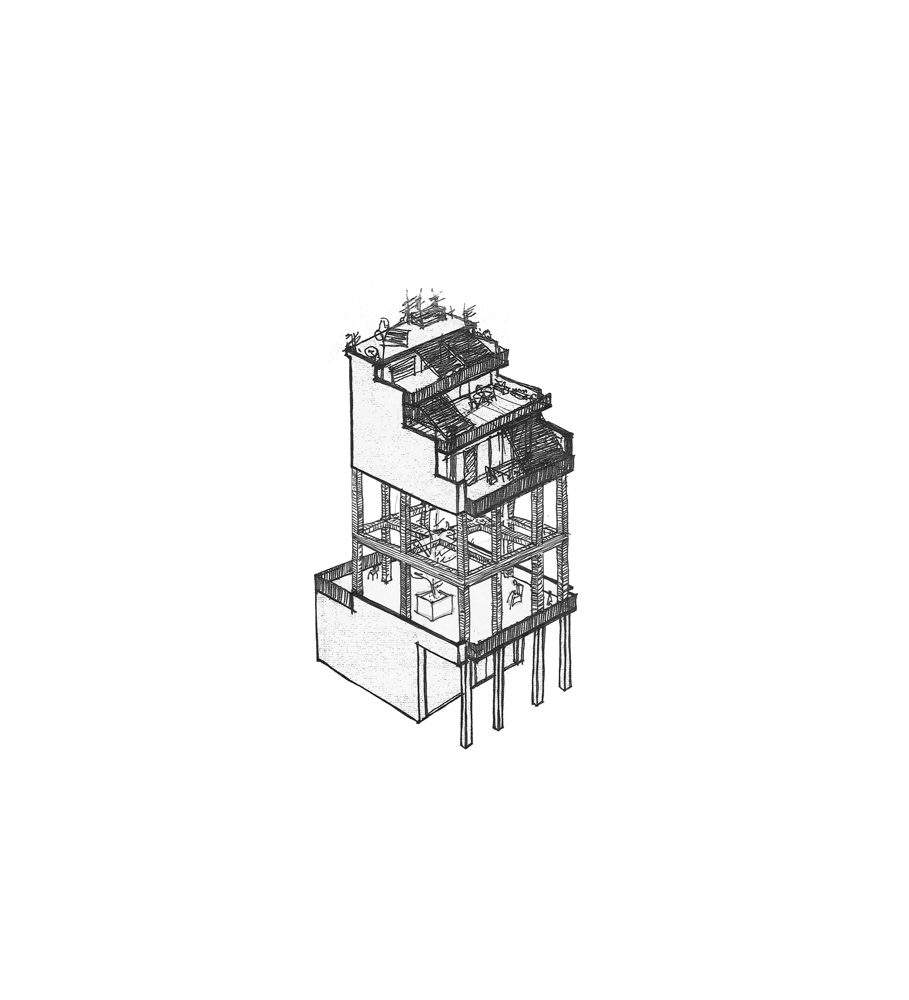What is the relation between architecture and crisis? What is the role of the architects in such a difficult condition? We cannot just remain viewers of the city change but we have to propose solutions and dream the future. We have to perceive the urban crisis not as a crisis but as a design project.
meta (from the Greek preposition and prefix meta- (μετά-) meaning “after”, or “beyond”) is a prefix used in English to indicate a concept which is an abstraction behind another concept,
poesis (Ancient Greek: ποίησις) is etymologically derived from the ancient Greek term ποιέω, which means “to make”. This word, the root of our modern “poetry”, was first a verb, an action that transforms and continues the world. Neither technical production nor creation in the romantic sense, poetic work reconciles thought with matter and time and person with the world.
The problematic financial position of Greece traces an urgent need of innovative proposals concerning the urban fabric of Athens. The concept of the metapoesis project names a research concerning the constantly changing condition of Athens today. The metapoesis project introduces new legal structures to the existing Athenian Polykatikias which would give a new chance to live in the abandoned city center. This research aims to give a positive answer to the crisis of our city. The once successful economic model of reconstruction in Athens, which began with the system of “antiparohi” and led entire generations of families to simultaneously act as designers, owners and consumers of the space of the “polykatoikia”, has now collapsed. The ownership of aged apartments in the city center is now offset by unbearable taxation. The real estate and rental market is virtually non-existent in the city centre, and an over-abundance of apartments remains abandoned. A new, subversive approach is necessary at the level of the individual apartment, in order to renew the mechanism of “polykatoikia”1 both economically and socially. Although until recently the desires and dreams of middle-class families took shape within the confines of private ownership, ultimately leading to alienation and individualism, today it is apparent that a much more socially extroverted model of cohabitation is needed. The rental of apartments through services such as Airbnb, new forms of cohabitation and live/ work arrangements, are but a few developments that have, little by little, allowed the typology of the apartment to remain sustainable. During the research we will examine a typical Athenian “polykatoikia”, submitting it to extreme transformations. New, hybrid programs will act as a tool to challenge the relationship between private and “common” space, the open and the closed, converting outmoded apartments into self-sufficient, lively and open urban prototypes. The methodology that will be followed is to establish a set of tools, such as advanced materials, urban design techniques, innovative structural systems and sustainable methods. Our goal is to discover flexible residential scenarios for Athens in order to enter a new phase of alternative function.
It is much more easier socially and economically to improve our buildings than to demolish them and build new. Our goal is to keep balance between the preservation of the old and the introduction of something new. Purpose of this study is to blend the new and the old but also to improve and not just romanticizing the ‘‘polykatoikia’’.











